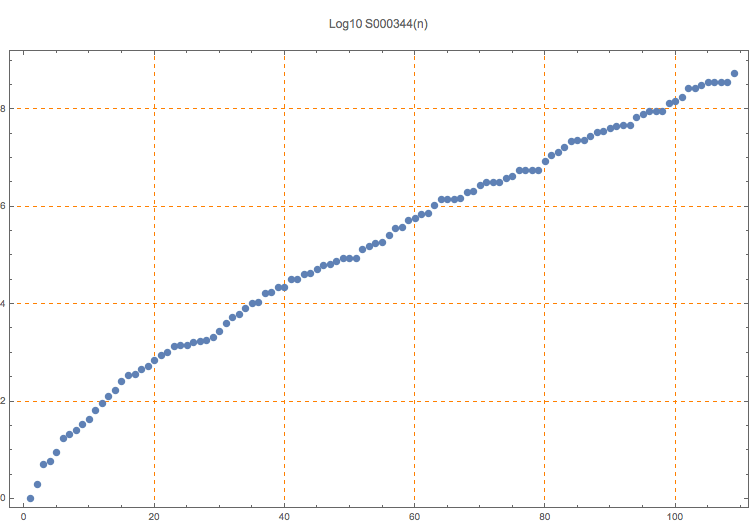Numbers n such that the n-th triangular number n*(n+1)/2 is a palindrome in base 2.
1, 2, 5, 6, 9, 17, 21, 25, 33, 42, 65, 90, 129, 170, 257, 341, 357, 450, 513, 693, 893, 1025, 1365, 1397, 1445, 1617, 1670, 1750, 2049, 2730, 4097, 5418, 5985, 8193, 10397, 10922, 16385, 17313, 21717, 21845, 31749, 32769, 40637, 43605, 51537, 63482, 65537
1
Ulas proves that this sequence is infinite. It is infinite because n = 2^k+1 is a term for all k > 1. See the base 2 numbers in S000352.
T. D. Noe, Plot of 109 terms
T. D. Noe, Table of 109 terms
Maciej Ulas, On certain diophantine equations related to triangular and tetrahedral numbers, arXiv 0811.2477 (Nov 15 2008)
Eric W. Weisstein, MathWorld: Triangular Number
(Mma) ff[base_, len_] := Module[{n = 0, t = {}, tri, d}, While[Length[t] < len, n++; tri = n*(n + 1)/2; d = IntegerDigits[tri, base]; If[d == Reverse[d], AppendTo[t, n]]]; t]; ff[2, 40]
Cf. A003098, A008509 (base 10), S000345-S000351 (bases 3-9), S000352.
nonn,base,hard
T. D. Noe, Nov 18 2014
